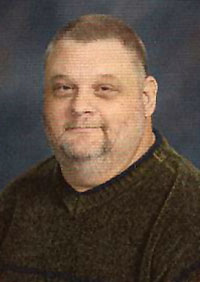Local resident seeking kidney donor
Information submitted
Local resident Terry Amstutz of Van Wert is in need of a live donor kidney transplant. Amstutz, a teacher who dedicated his life to working with challenged students, has one kidney that is no longer functioning and the other on the verge of shutting down.
He has been on peritoneal dialysis for over three years and is now doing two manual exchanges of one hour each and nine hours on a nighttime cycler for a total of 11 hours a day, seven days a week. This has caused some of his other organs to become compromised, and he has had open-heart surgery with four bypasses.

After working as a paraprofessional/teacher for over 21 years, 19 of those with the Western Buckeye Educational Service Center, Amstutz was forced to take a disability retirement from the Ohio school system.
Unfortunately, the need for organs is far greater than the supply, and many patients like Amstutz face a long waiting time. A patient on dialysis might wait three or more years to receive a kidney from a deceased donor. A better option is for the patient to receive a kidney from a living donor. At Fort Wayne Lutheran Kidney Center, more than 52 percent of organ transplants are from living donors.
A living donor transplant is typically very successful. According to information from the hospital, a kidney from a living donor is in good condition because donors are given an extensive evaluation. A kidney from a living donor also does not require preservation time, but is walked from one operating room to another and can be working in its new “location” in 30 minutes.
With living organ donation, transplants can be scheduled at the convenience of everyone involved. A donor can be anyone whose blood type is compatible with the patient’s and is in good physical condition and generally healthy (free of high blood pressure, diabetes, cancer, kidney disease and heart disease). Gender and race do not matter. People considered for living donation are usually between the ages of 18 and 65. If the donor is a woman who wants to have children in the future, studies have shown that kidney donation does not affect completion of a safe pregnancy.
The safety of donors is of utmost importance. They are evaluated by a specialist to confirm suitability and safety for donation and surgery. Donating a kidney does not cause illness or disease. Once donors recover from surgery, they can return to a normal lifestyle. According to a recent study, the life expectancy of living donors is the same, or longer, than if they had not donated. A donor’s remaining single kidney is able to meet the body’s needs very well, and actually enlarges to handle the work formerly shared by both kidneys.
The operation may be done as laparoscopic surgery, with a smaller incision, a shorter hospital stay, and a faster recovery. The typical hospital stay for a living kidney donor is two to four days. As with any surgery, there are possible risks; however, these are reduced by the extensive evaluation done on all donors.
There is no out-of-pocket cost for the living donor. All fees are covered.
For more information about donating a kidney to Terry Amstutz or someone else in need, or to talk with a staff member in the Pre-Transplant Center, call 260.435.7708 or 800.444.2001, extension 6275 (Valerie).
According to a hospital representative, “Donating a kidney to someone with kidney failure can be one of life’s most rewarding experiences.”
Amstutz himself is hoping for a second chance at life. He asks everyone interested to consider a living donation.
POSTED: 07/02/13 at 6:56 am. FILED UNDER: News







